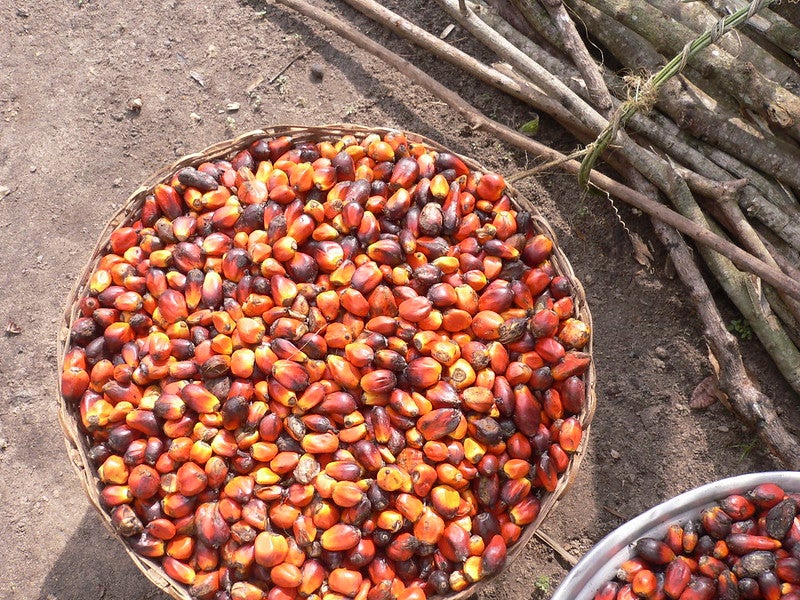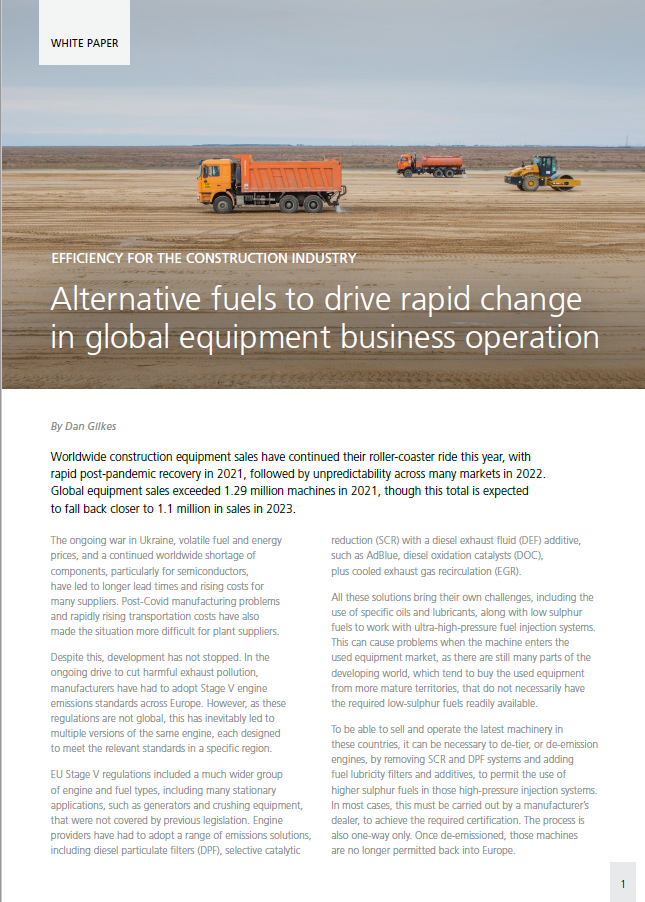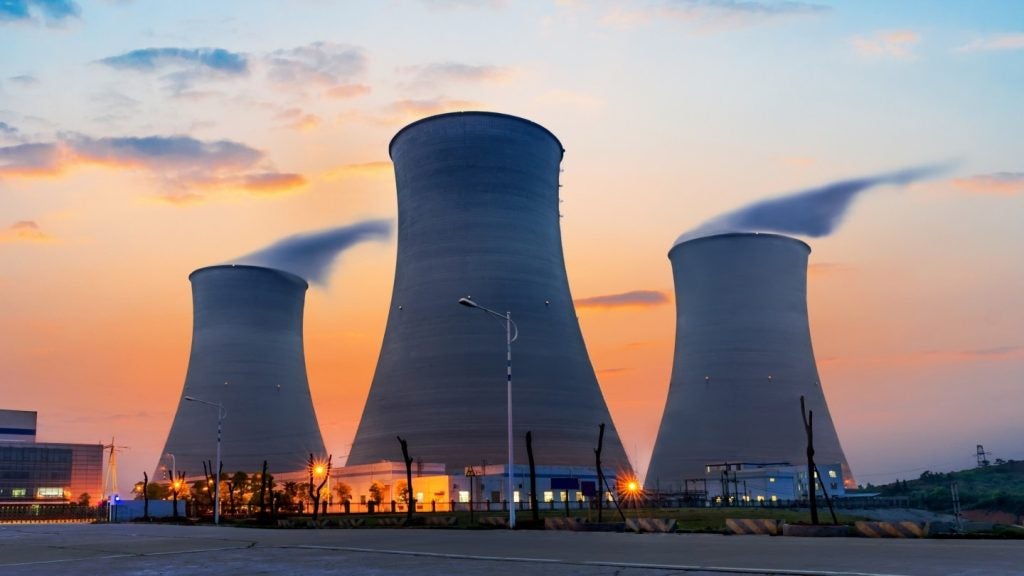
Consumer dissent against palm oil has been rumbling for years now, with rising awareness of its impacts turning opinions increasingly against its use in beauty products, food supplies, and now energy production. The French government’s announcement is only the latest step in the bid to dampen the use of palm oil, with the European Union (EU) tightening its net around the contentious substance as member countries begin to define legislation to prevent environmental damage.
Top palm oil producing countries such as Indonesia and Malaysia are fighting back however, and the energy company Total is gearing up to contend the recent law in France. Balancing economic gains with environmental obligation is proving rocky terrain, and it seems action against unethical biofuels is only just beginning.
The French ban
A long-contested decision, palm oil’s exclusion from the French biofuel scheme came into effect in January 2020. Under the law, palm oil cannot be considered a biofuel unless producers can guarantee its production has not added to greenhouse gas emissions, with the country’s constitutional court saying the measure is in line with the public interest of environmental protection.
“Expanding palm oil plantations contributes to deforestation in Southern countries,” French MPs stated in their amendment to the law. “…if the effect of indirect land-use change was included in the greenhouse gas balance, palm oil would be the most damaging biofuel for the climate.”
A March 2019 press release from the EU said palm oil, of all the biofuel sources, was proven to be associated with the highest level of deforestation, with 45% of palm oil expansion between 2008 and 2015 taking place in high carbon stock areas.
How well do you really know your competitors?
Access the most comprehensive Company Profiles on the market, powered by GlobalData. Save hours of research. Gain competitive edge.

Thank you!
Your download email will arrive shortly
Not ready to buy yet? Download a free sample
We are confident about the unique quality of our Company Profiles. However, we want you to make the most beneficial decision for your business, so we offer a free sample that you can download by submitting the below form
By GlobalDataThe efforts of Greenpeace France were instrumental in lobbying for the ban, and the organisation was especially vocal against objections from Total. The oil and gas giant had only recently invested €300m to convert its crude oil refinery in La Mède to a biofuel plant, and CEO Patrick Pouyanne warned palm oil’s exclusion could lead to a loss of up to €80m ($88m) for the site.
“It’s been a very big fight,” says Clément Sénéchal, climate and forest campaign officer at Greenpeace France. “And the French government is not as progressive as it seems – it is at the centre of a false image. Our government mainly focuses on protecting the vested interests of corporations like Total, and that’s why it didn’t side with us on this matter initially. The strategy was to almost bypass the government by going via the MPs.”
As part of its campaign against Total, Greenpeace released a report investigating the company’s biofuel supply chain, with findings showing most of the oil used in La Mède was ‘without guarantee and therefore potentially associated with deforestation.’
“We demonstrated that the whole supply chain was contaminated with illegalities,” Sénéchal says, “and the claims of Total about only using 100% traceable oil was false.”
While the efforts of Greenpeace have so far been fruitful, palm oil’s exclusion is not yet set in stone and the ban is expected to be up for debate once more during discussions for the 2020 finance bill. However the increased pressure on the government has made environmentalists optimistic for success, and for similar measures to be echoed elsewhere.
What’s next for biofuel?
Speaking with Lisa Randone, national manager for knowledge and research at Bioenergy Australia, she says that while the war on palm oil is a growing phenomenon, it’s receiving particular fervency in the biofuel industry.
“Palm plantations have caused huge deforestation in South-East Asia, and the problem is compounded by the draining of the peat bogs and subsequent fires caused when the land is drained and cleared,” she says. “The problem is that whilst biofuels are targeted, the world is still addicted to palm oil for food and household products, detergents etc.”
Indeed, the new spotlight on biofuel’s ethical production is cranking up industry-wide efforts to mitigate damages. The EU finalised tariffs on Indonesian biodiesel imports in December 2019 – a move which itself followed the decision to phase palm oil out of renewable transport fuels. The duties, set at between 8% and 18%, are anticipated to remain in place for five years.
Such measures have sparked tensions with the top palm oil producing countries of Malaysia and Indonesia, and Master Parulian Tumanggor, chairman of Indonesia’s biofuel producers association, told Reuters his group would be filing a legal challenge to the new tariffs at the World Trade Organization.
A wider campaign of discouragement
For others, the EU has not gone far enough, and some industry members think biofuel use should be more widely discouraged. Randone says objections to using food crops for fuel has made palm oil’s presence in biofuel even more contentious, and this stance was evidenced in a statement from Greenpeace. In an email, the organisation said it opposed any agricultural crops to be grown for the purpose of biofuel, saying land “should be used first and foremost for food production”, and adding that any ban on unethical biofuels should extend to all agricultural commodities, not just palm oil.
“If using the biomass comes at the expense of natural carbon stock and sinks like forests,” says Sénéchal, “then it’s not a fit for purpose solution. The shift towards biofuels is a shift towards the end of tropical forests. The solution won’t come from biofuels, it will come from energy saving initiatives.”
When asked what’s next for Greenpeace’s campaign, Sénéchal said they are setting their sights on expansion – both by country and also to other crops used for biofuel.
“We have to make sure soy-based biofuels are also excluded from the list because they generate a lot of deforestation in the Amazon,” he says. “That may be the next battle. We’re also trying to expand this into other European countries who are very interested in what we have done and what we have achieved. In the end, we need to make sure the European legislation gets stronger.”








